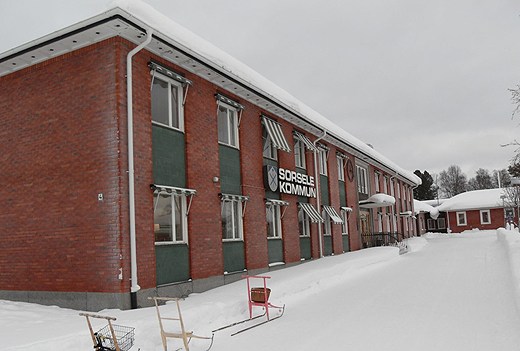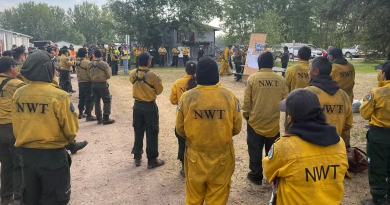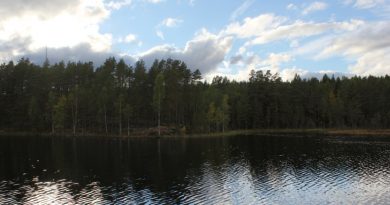Refugees Help Swedish Northern Town Beat Depopulation
Listen: {play}/media/jukebox/radio-sweden-depopulation.MP3
 Depopulation is a growing problem across the sparsely populated north of Sweden. More than 20 districts set to fall below 5000 inhabitants within a decade, as young people leave for higher education and jobs in cities further south.
Depopulation is a growing problem across the sparsely populated north of Sweden. More than 20 districts set to fall below 5000 inhabitants within a decade, as young people leave for higher education and jobs in cities further south.
But the far northern district of Sorsele, with a population of 2700, or less than three people per square kilometre, may have found a way to reverse the trend.
In the past 50 years this area, stretching from the northern midlands up to the Norwegian border, has lost half its inhabitants.
In response, the local council began accepting more refugees per head of population than any other part of Sweden, many of them children and young people in their 20s.
Tom Sullivan travelled north to Sorsele – the second most sparsely populated part of the country – where the local council is fighting depopulation with a generous refugee policy and other incentives to attract people to the area.
The leader of the local council, Caisa Abrahamson, says Sorsele cannot afford to lose more people, as public services depend on local taxes and much of the workforce is destined for retirement in the coming decade.
“We need more people. Last year we grew by ten and this year we hope to add one more. The most important thing is that we become more and more!” she told Radio Sweden.
 The newcomers are offered education and job opportunities on the condition that they stay in the area at least two years. The policy aims to get refugees into work as soon as possible to smooth their integration into the community.
The newcomers are offered education and job opportunities on the condition that they stay in the area at least two years. The policy aims to get refugees into work as soon as possible to smooth their integration into the community.
“They have to learn Swedish. Without Swedish you can’t get a job and I think everyone wants a job and the social life that comes with it,” says Abrahamson.
Abrahamson says local people have reacted well to the refugee policy.
“Most of the people here think it’s interesting. They want to learn more about the newcomers.”
However another initiative, aimed at recruiting workers from abroad to fill public sector vacancies, did not go down so well locally. Last year the council made a trip to Apatity – its twin town on the Kola Peninsula in northern Russia – and encouraged job seekers there to consider moving to Sorsele. The response was overwhelming with hundreds of enquiries from interested Russians and the council was forced to abandon the project after protests from local residents.
So instead the council is now hoping to steer local school children towards careers that are needed in the area, as well as attracting back families who moved away by offering subsidised accommodation and job opportunities in nursing and other public services.
And they are hoping that refugees and their children will also help to fill the labour shortages.
But how are people from some of the world’s most densely populated regions adapting to one of Sweden’s most sparsely populated districts?
Kesavan Kailajapilla is a 22 year-old Sri Lankan from the Tamil town of Jaffna, who arrived here two years ago.
“Sorsele is very cold and there’s not that many people. And it has no town centre where you can meet people and get to know them,” he says.
“People are friendly though – at first they were not sure if refugees are maybe dangerous but once we’ve spoken a little they see that we are good.”
20 year-old Belqeis Hedari came from Afhanistan via Iran a year and a half ago.
“It’s very cold here and there are very few people but it’s a good place. I’d like to continue learning Swedish and eventually study to be a lawyer.”
Carola Persson, is a teacher at the school. She says that more needs to be done to help the new arrivals get up to speed with Swedish and to adapt to their new lives.
“They lack support people to help them out with adapting to life here,” she said, adding that refugees from war zones have not been offered any form of counselling.
“Just getting daily life to function can be a big challenge – figuring out how Swedish society works, how you pay bills and things like that,” she added.
“They just have three hours of Swedish per day and the groups can be quite big which means we can’t help everyone they way we should. But they are all motivated and want to learn.”
Reporter: Tom Sullivan, Radio Sweden/Sami Radio



